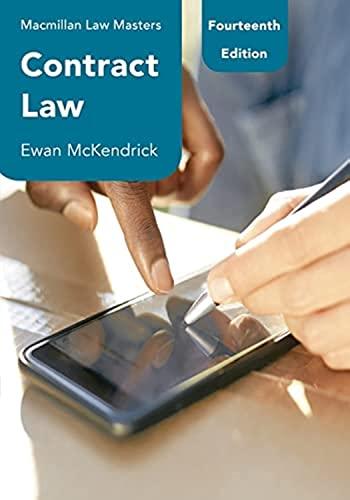Question
The police receive a few leads from the public that X has been involved in selling crayfish illegally, for large sums of money. In accordance
The police receive a few leads from the public that X has been involved in selling crayfish illegally, for large sums of money. In accordance with the Marine Life Act 25 of 2008, it is illegal to sell crayfish without obtaining a license from the Minister of Wildlife and Marine Affairs. This Act also provides that the sale of crayfish by any person or entity without possessing the requisite license, is deemed void, and that such person may be liable to a fine or an appropriate prison sentence. The police in the area decide to set a trap for X, and they place an order to purchase 100 kilograms of crayfish from X for R200 000. The police make this payment to X, and he (X) delivers the 100 kilograms of crayfish to them. X is subsequently arrested and charged with contravening the Act because he admitted that he never ever had the requisite license to sell crayfish, and he knew that it was illegal to sell crayfish without a license. In a subsequent civil trial, X seeks to claim back the 100 kilograms of crayfish he delivered to the police. In the same trial, the police on the other hand are claiming back the R200 000 that they paid to X, to be returned to the State. Discuss fully if either party or both parties will succeed with their respective claims. Refer to case law in your answer. Do not apply the Consumer Protection Act 68 of 2008.
Step by Step Solution
There are 3 Steps involved in it
Step: 1

Get Instant Access to Expert-Tailored Solutions
See step-by-step solutions with expert insights and AI powered tools for academic success
Step: 2

Step: 3

Ace Your Homework with AI
Get the answers you need in no time with our AI-driven, step-by-step assistance
Get Started


